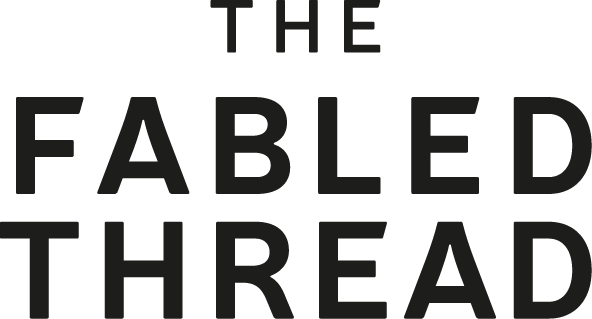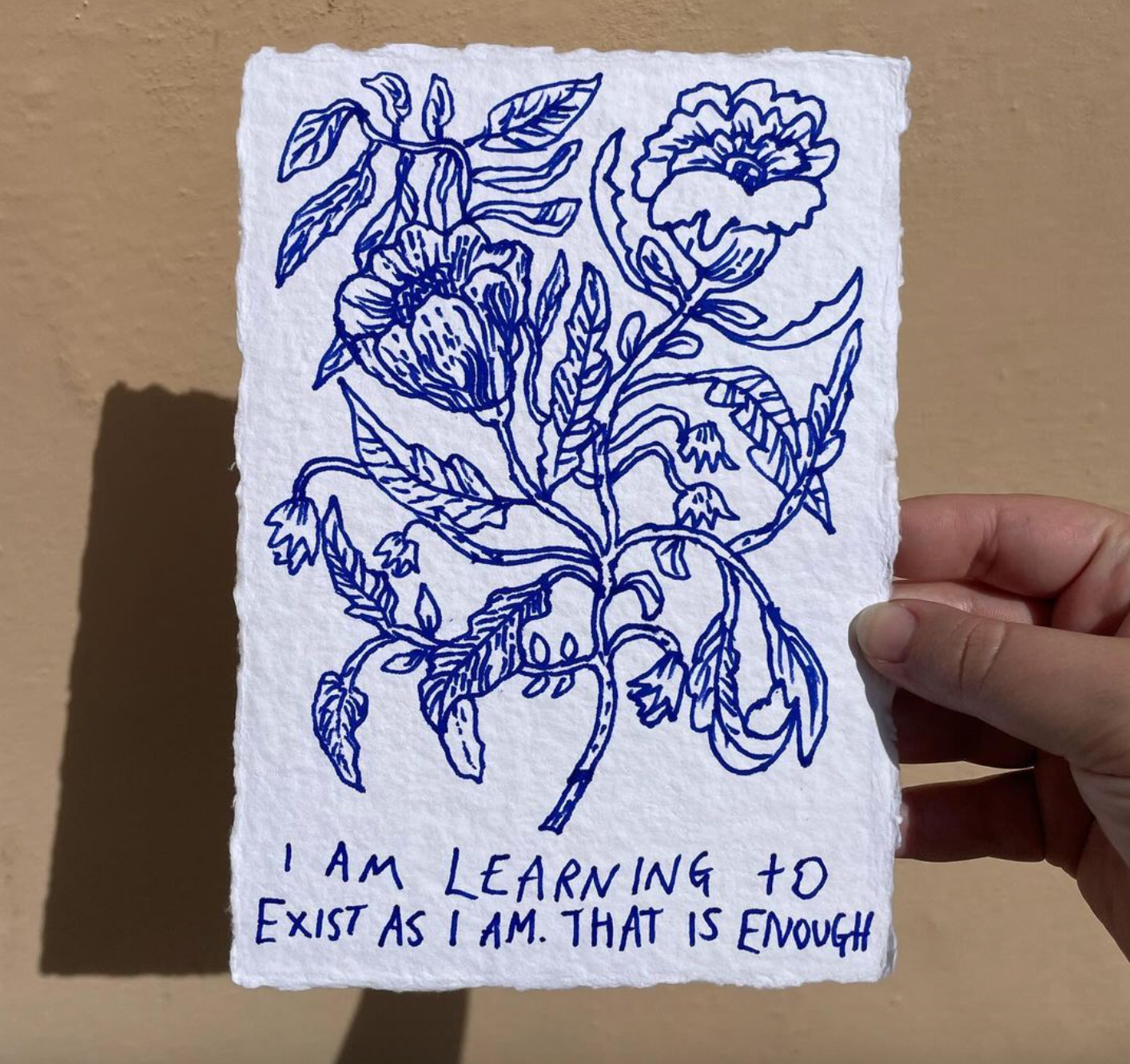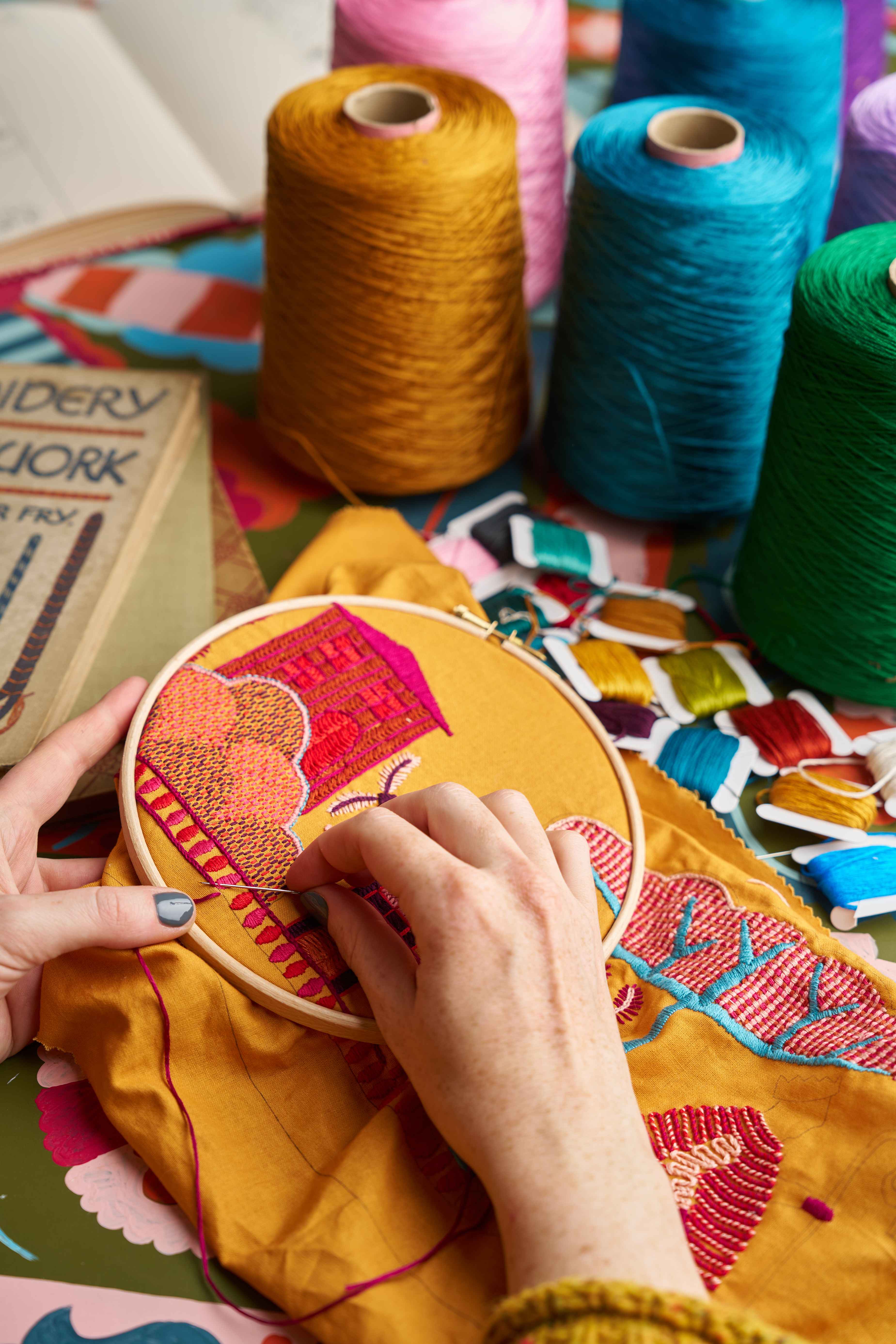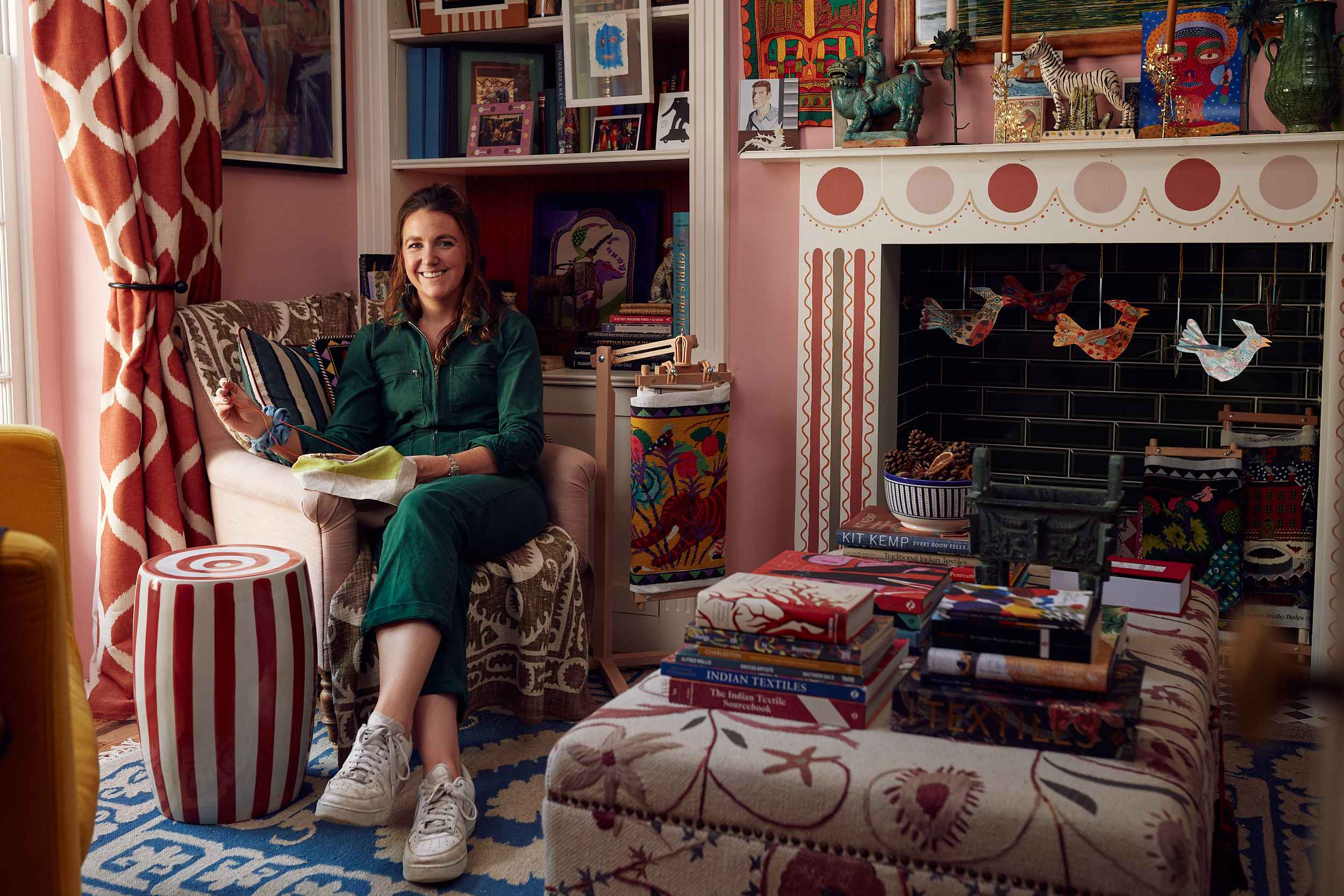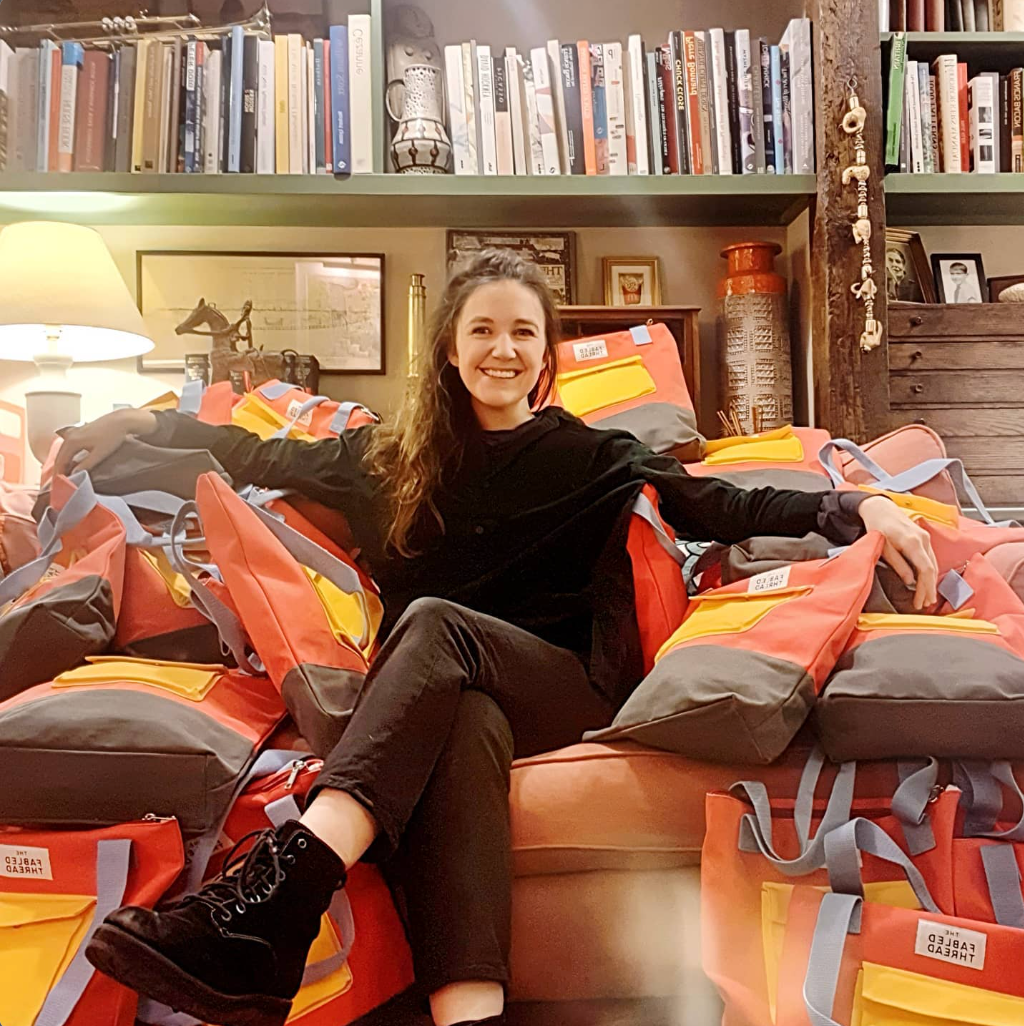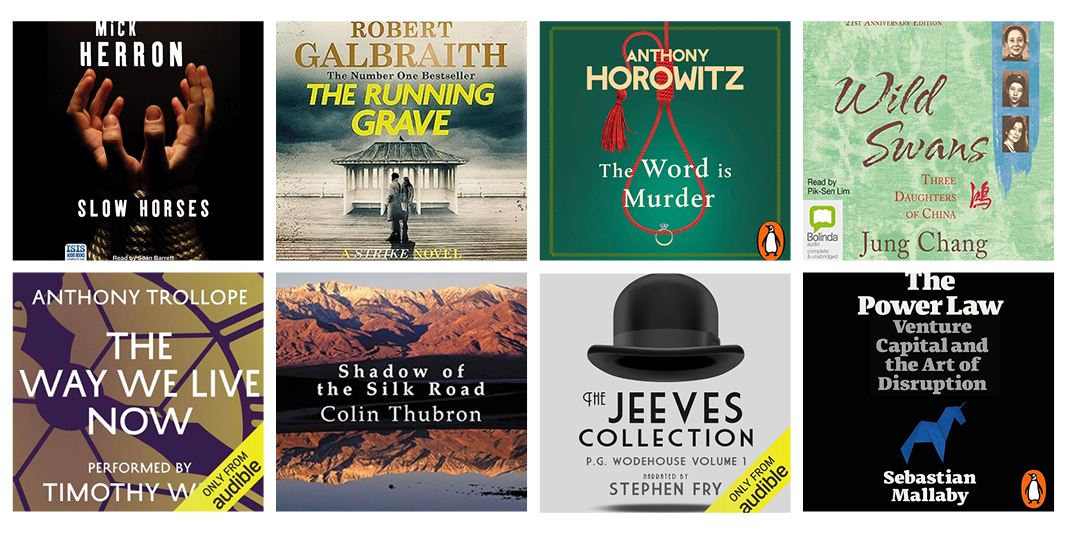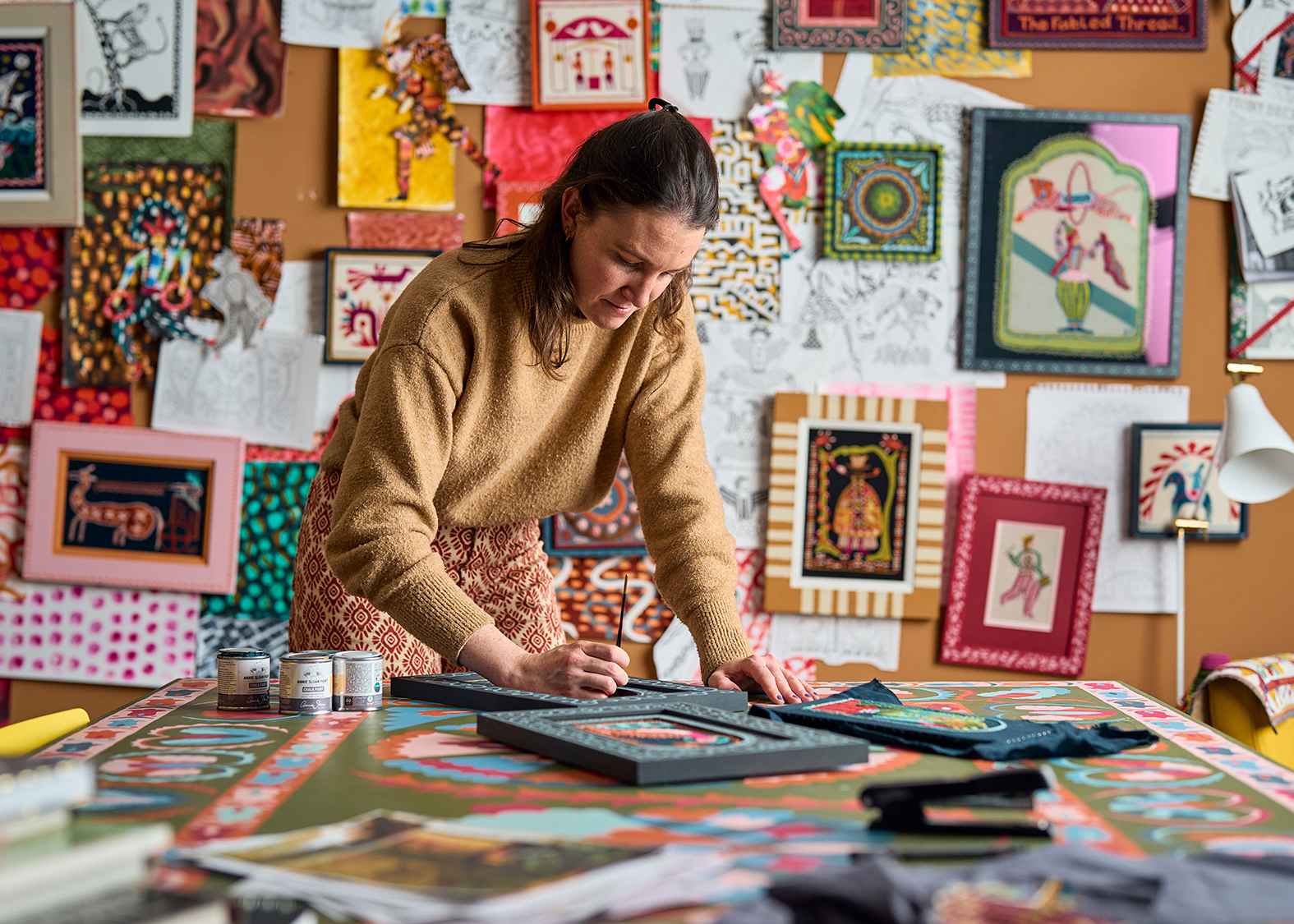
Four lessons from (nearly) four years of The Fabled Thread
It’s hard to know when our business birthday is. I left my job at the end of February 2020 so in some ways that is when it all begins. I planned to launch the business in July, giving myself a few months to get everything ready and enough lead time for our packaging to arrive. However, when Covid struck, I scrambled to quickly launch a temporary product (the camels, for anyone who can remember that far back!). Going back over my earliest sales, it seems they were largely just to my friends, so do they count or were they purely out of love? At the start of May, when full launch was meant to happen, disaster struck as my first web development company went bust leaving me without any money or a website. It wasn’t until the end of May (23rd to be precise), that I launched my self-built website, our packaging made it through the Covid customs chaos, and I sold my first kits to “strangers”. So in my head, that’s our birthday. The first day when we sold products in line with the vision I had been working towards for the previous 2 years.
It's been a magnificent, turbulent, stressful, exhilarating and life changing journey so far – I never envisaged the business being the shape or style it is today at the outset. There was no proper business plan (still isn’t really, eek!), but it’s been driven forward through passion, hard graft, a loyal community and with the support of an amazing team. Starting a business is both the best and the worst thing you can ever do… the best as the highs are almighty, the pride is immense, and every day feels like an adventure. You are in control of your future. The worst because the lows can be mega, the founder isolation is hard, and because once you try it, you know you could never go back to a normal job again (something I wrote about here). It’s horribly and wonderfully addictive. I know I am now, and forever, trapped in the business owner world.
To be honest, I am not entirely sure where I thought I would be when 4 years in – all I know is that I had an image that by now the daily graft would have eased off, I’d have certainty over my future, and I’d be spending my days stitching, painting, drinking margaritas and responding to the odd email… I think I had listened to one too many business founder podcasts!
Entrepreneurship is glamourised, the length of time it takes for business to succeed is underplayed, and I think the idea of overnight success is a fantasy. At the outset I felt like 5 years seemed miles away, but as that gets closer, I feel like we are only just getting started. It’s only in the past year I feel I have actually understood our purpose and my vision for The Fabled Thread. The start of our 5th year to me really feels like the very beginning.
So with that in mind, I thought I would share my 4 more important lessons from 4 years of The Fabled Thread.
I started planning to launch The Fabled Thread about 2 years before I left my job. Whilst the main reason for this was to save money so I could quit (investment banking wasn’t the kind of role that could side hustle with), it also meant I was able to spend a lot of time finding people to work with. Whilst some of those were amazing (Marc and Rosey my branding team are the first people who ever knew about The Fabled Thread, and still do my branding now), some went very badly wrong, like my aforementioned first web development company.
Being left stranded with no website and no remaining money about a week before launch was an incredible way of discovering what I was capable of learning. There was no choice but for me to build the website myself. I taught myself basic coding, built a bespoke template and over the course of the next three years continue to develop the website, using add-ons, youtube tutorials and no end of googling. Building the website myself was one of the best decision, even if it was foisted upon me. Through it I learnt that things often appear a lot more complicated than they really are; that some people will take advantage of your naivety and charge you far above the reality of the time involved; that having understanding and control of your most important route to market is absolutely key.
I did eventually hit a brick wall with the self-built website so we invested in an all-singing all-dancing one last year that was far beyond my basic abilities. However everything I had learnt meant I was able to go into this project far better informed, more critical of the proposals put forward and most importantly, knowing that at the end of the project we would be taking our website back into our own control.
Often I meet other business owners and they will recommend X agency that transformed their email marketing, or Y agency that generated 5x sales growth through paid ads, or Z agency who will transform your social media engagement. Take it all with a pinch of salt. Whilst there are some great people out there to work with, I have been stung in the past. Money is tight in a start-up and you give up valuable margin to someone else when you outsource. I firmly believe you should invest the money and time in training yourself and your team to learn the basics – no one is more motivated to grow your business and none of it is rocket science. There is a wealth of information out there, from podcasts to blogs to videos… you can use that to get yourself to a “good enough” level in every aspect of your business. You will be able to learn enough to know where it is worth investing, and to make sure you really understand your product, market and customers.
I would never have created the business I have today without the input of our community. Whilst I knew what my own aspirations were for the kits, I am just one person with one perspective. Whereas now I have access to thousands of people who are so wonderfully willing to tell me what their pain points are, what they would like to learn, where they see gaps in what I do, or just to sense check new ideas with. All our best ideas and products have come through conversations with our customers.
We launched virtual courses because I had so many emails from people who couldn’t make it to London. We launched paint-your-own frame options because many customers either couldn’t afford our hand-painted frames or wanted to do their own designs. We launched our refill kits following concerns from customers about the numbers of our bags or boxes pilling up at home.
It took time to open up – I was so hung up for a while on the idea of secrecy around launches or new product ideas. However every time I have shown vulnerability, or put a questions out there to our audience, I have been inundated with advice and guidance. Now I realise we are far more likely to succeed, both for ourselves and for our community, if we involve them in the decisions from the beginning. Listening to what they want steers the strategy of The Fabled Thread. My job is to then deliver that to the best of my ability, whilst always trying to add that extra touch that wasn’t asked for.
There is of course a balance in being able to filter through what of those things asked for are aligned with The Fabled Thread, and what of those things should be done by someone else or another brand. I am also really careful about not allowing it to necessarily steer the aesthetic – I want to design pieces which you weren’t expecting and trust that even if I go a little off piste with the designs, that you are all comfortable enough with me to trust that its going to work! I’ve found that overtime, my confidence has built to go a bit weird and embark on wilder projects, because we have a trusting two-way relationship with our customers. It’s the most valuable thing in our business!
As I alluded to earlier, when I started the business, I definitely thought things would feel a bit easier by now. However, I am learning that a year is no time at all in the scheme of a business, particularly when you do something like needlepoint where it can take up to 2 years to finish a kit. Four years in and we are only just now starting to be able to look at our sales history, to understand how and why people come back or assess what initiatives have or haven’t worked.
There are times when cash gets tight and it can be tempting to just launch something that I know will be popular (but are not necessarily in line with your aesthetic), to do a sale to get some cash into the business, or to sporadically put money into paid advertising, but it isn’t necessarily a sustainable way to grow. I am in this business for the long haul – this is my passion and I can’t see myself ever wanting to do something else - so the reality is that I have to grow our business with that longevity in mind.
Take the specific example of our virtual courses. I had the option to do these through a well-known virtual course provider which would have been much simpler and not cost me a penny! However, it didn’t feel right to give away the knowledge that I had taken so long to build, to lose control over the output of that, to not be able to foster a relationship with the individuals using the course, and (all importantly) to give away the vast majority of the profits to someone else. If I was building the business for the short-term, maybe I would have thought differently – it’s a great way of getting immediate PR after all – this could have been a quick win. However, instead I borrowed money and hired a production company to produce the courses ourselves. It meant from the outset we knew it would be a good couple of years until we potentially started making any money on the courses (incidentally we are just breaking even now on the courses about 20 months after the first course launched and 10 months after we added the other two).
Whilst we may only just be breaking even now on the project, if we look at how many of the people who chose to do the course then have become part of our community – be it joining the studio, purchasing other kits from us, choosing to get materials alongside the course, coming to in person events – it far exceeds what could have happened if we had done it through an external party. But the thing is, it’s not a quick win. It took months of planning, a lot of investment, and a constant nagging doubt of whether anyone would want them.
This is just one example, but the idea has repeated over and over again across the business - whilst there may appear to be easier ways to do things that will get the result quicker, I am learning that the longer and harder way often creates more value in the long run.
Before I started the business, I read so many books about starting a business and the vast majority talk about finding your purpose. I came from years working in finance where, honestly, the only real purpose is making money. So to me, it all felt like a lot of guff. I was a true sceptic about whether purpose actually matters, and I certainly didn’t come into The Fabled Thread with a purpose in mind. I just wanted to share my love of sewing and make embroidery kits (and in small part, just get out of finance!).
However, through running the business and meeting so many different people, I have slowly discovered my purpose – our purpose. What started as just a business is now a mission - to empower everyone to be creative. To often, people are told that creativity is something innate, and I want to show it isn’t. It can be taught, it can be nurtured and it can change lives.
What drives me, makes me keep showing up everyday, and keeps me excited about the journey ahead, is that purpose. It guides me daily on what we will and won’t do. I won’t sell finished embroidery because that is actually the antipathy of my purpose. If you can just buy it, how does that encourage creativity. I will talk openly about the struggles of the creative process, because I want to normalise that it isn’t easy but you aren’t alone in feeling that. My purpose is everything to this business. Whilst we didn’t start with one, I don’t think we would have made it this far or know what the future holds, if we hadn’t discovered it. It is at the heart of every product launch, every event, every article, every new hire, everything.
Having started as a sceptic, I am now firmly in the “purpose driven business” camp. I think if you run a business without a purpose, whilst you can be successful in the short term, eventually you’ll lose sight of what it is that makes you who you are. You’ll launch things that aren’t aligned, you’ll take on work that feels mismatched, and I think eventually you’ll lose your way (take a look at Instagram as a prime example of a business that I believe has forgotten their purpose!). The purpose doesn’t have to be big, you can discover it along the way, and it can change over time, but take the time to try and find it!
If you enjoyed this article, do take a look at our Studio Membership where I write quite regularly about the realities of running a small creative business.
